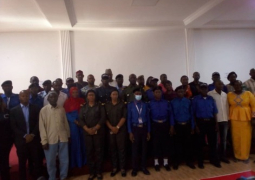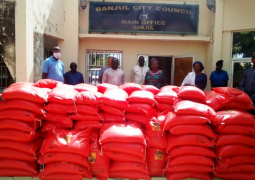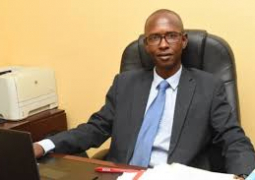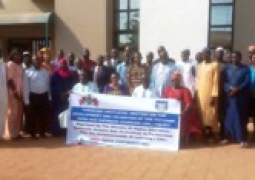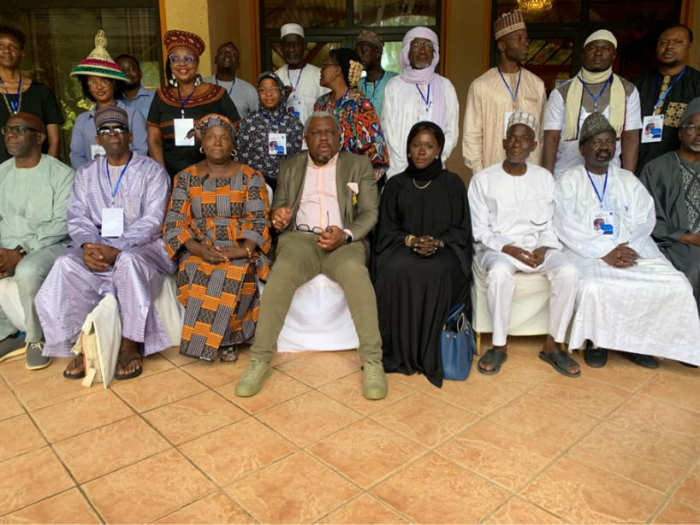
This three-day transformative consultation and training programme showcased the vital role of these leaders in promoting democracy and human rights.
The event was held under the theme - “From Traditional to Transformative: Empowering Religious and Traditional Leaders for Democracy, Rule of Law, and Human Rights.”
At the event, Hannah Forster, Executive Director of the African Centre for Democracy and Human Rights Studies (ACDHRS) underscored the role of religious leaders in preaching the peace and the word of God to their congregation, which she added, has a link to human rights.
“For the past years, we have seen that the African Centre for Human Rights has not been engaging religious and traditional leaders and we must examine the parallel lines between human rights and religion.” she said.
She highlighted that the role played by religious and traditional leaders in society is the same as that of human rights advocates.
Speaking on behalf of the participants, Dr. Nana Busia, a lecturer at London University, who is also one of the facilitators of the event, acknowledged that series of training sessions had been conducted by the ACDHRS, but the Centre would like to now focus on the African traditional and religious leaders.
“Before colonization and the coming of the modern laws, we have our traditional leaders existing,” Dr Busia recalled.
“Now that we have problems with our current governments, therefore, we have to engage our traditional and religious leaders to mitigate those problems because the public listens to them.”
Religious and traditional leaders, she went on, are very influential in society and ‘if they are not involved in peace building, it would be difficult for peace to be attained.’
Sadik Nyass, a representative of the Governing Council of the ACDHRS, said the event was to build a democratic society and “to do away with” the humanitarian challenges women and children face in Africa.
“There are only a few differences between what religious leaders teach and what traditional leaders do because their ultimate aim is to make sure that there is peace within the environment they are living in.” he said.
“As a human being it is not right for an individual to kill and that is the same thing that traditional rulers and religious leaders preach.”
To this end, he observed that no state could work effectively if it ignored the participation of religious leaders. Their work is very crucial when it comes to peacebuilding.
“If there is no peace it will be difficult for an individual to perform his or her daily prayers. There are lots of problems happening that are caused by bad governance so all countries need good governance to attain peace.”
Saffie Sankary Farage, Permanent Secretary at the Ministry of Lands, Regional Government, and Religious Affairs, who delivered a statement on behalf of the Minister, said human rights are the basic freedoms and protections every human being deserves.
This, she said, include the right to speak freely, to live without fear, and to be treated equally, while democracy is about people having a voice, making sure those in charge are accountable to the public, and ensuring fairness and transparency in governance.
“These concepts are not just words - they are the foundation of peaceful, thriving communities,” she noted. “When we adopt them, we create the space for everyone to contribute and for societies to flourish. So, it’s about empowering leaders to uphold these values and, in turn, strengthen the communities they serve.”
“Globally, we are facing significant challenges, including threats to democratic governance, rising conflicts, and the resurgence of both military and constitutional coups that undermine the rule of law and peace. Political instability in many regions, combined with the rise of extremist ideologies, has placed increased pressure on institutions and communities across the globe and more especially in Africa.”
In that context, Mrs Saffie Farage said religious and traditional leaders hold a unique and influential position.
“Venerable religious and traditional elders must never downplay the crucial importance of their sermons to their congregations.” She stated.
These messages, she added, are powerful tools that can be used to foster unity and togetherness, adding that by doing so, they help ensure that ‘our democratic space is both guided and protected’.
“Their ability to mediate, promote peace, and advocate for human rights is essential in countering destabilizing forces.”
She reminded that as community leaders their roles in upholding the rule of law and fostering dialogue are critical in preventing conflicts, supporting democratic governance, and promoting sustainable development.
“This consultation is therefore essential in building their capacity to respond to these complex challenges and in empowering them to serve as pillars of peace and stability during these turbulent times.”
Furthermore, she pointed out that the Local Government Act of 2002 has integrated the roles of religious leaders into the governance structures of The Gambia, reflecting the importance of traditional and religious leadership in land administration, the dispensation of justice, and local governance in general.


